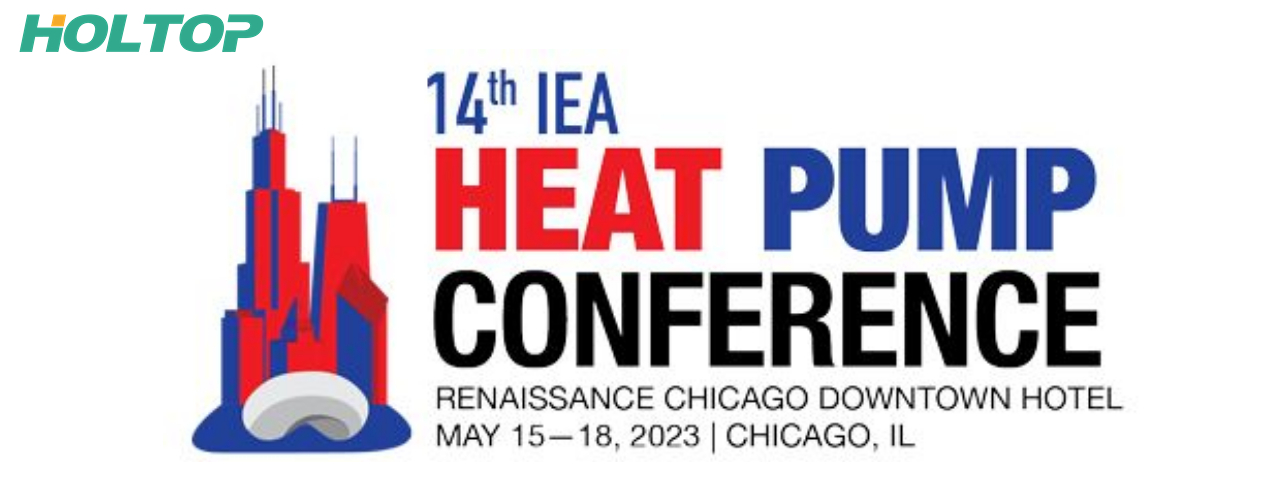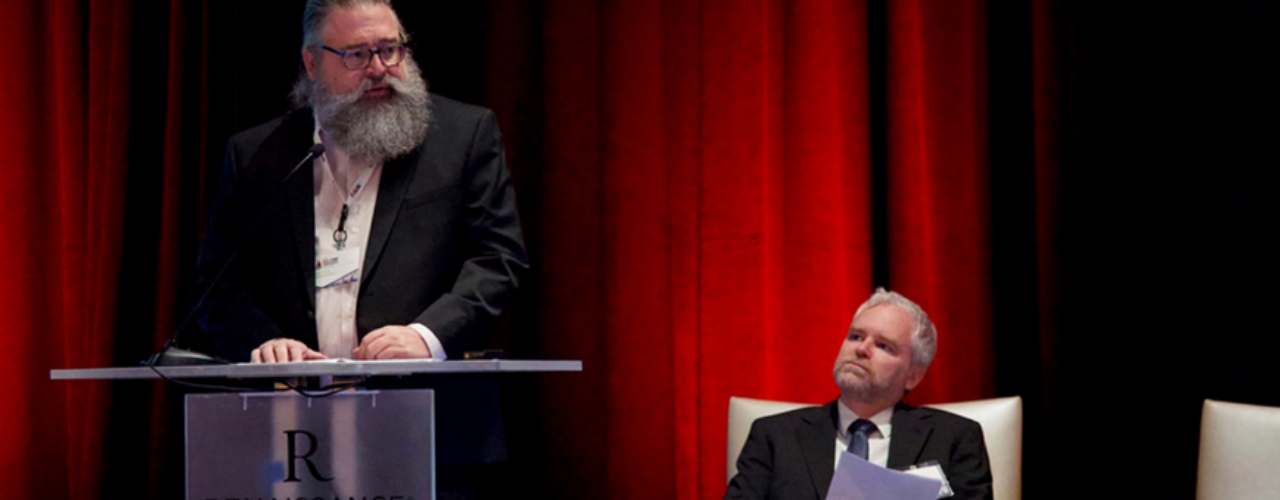
On May 16 the 14th IEA Heat Pump Conference was opened! 400 participants from 25 different countries joined the conference. Thomas Fleckl – the Chair of the International Organizing Committee, Brian Fricke – the Chair of the International Organizing Committee and Ramachandran Narayanamurthy – Deputy Director of the Building Technologies Office at US Department of Energy introduced the plenary opening session and welcomed all the conference attendees.

Then followed a policy session with three high level presentations. The first one was delivered by Fatih Birol, Executive Director of the International Energy Agency (IEA). He opened by saying that trough the 40 years Heat Pump Conference has been organized, heat pumps has rarely got this much attention from policy as today. Governments pay their interest in the technology for its many benefits – comfort, energy efficiency, climate change mitigation, cost savings, and for some countries, also energy security. A new clean energy economy is emerging, faster than one may think. For example, heat pumps markets are growing double digit in many countries. Dr Birol revealed that some years ago the heat pump industry was complaining that they did not have enough budget. Now they are complaining they are having a hard time handling all incoming orders.
Heat pumps are becoming the key heating technology for many policy makers. IEA is very happy to see the double digits growth around the world but recognize that the potential is much higher. Fatih Birol finalized his speech by thanking the Technology Collaboration Programme on Heat Pumping Technologies (HPT TCP), which for more than 40 years has brought together academia, industry, market and policy – “even in those days when heat pumps were not a star in the energy movie…” – for their stubborn and consistent efforts to make the heat pumps today an important part of the clean energy transition.
The second presenter during the plenary opening session was Jennifer Granholm, the US Secretary of Energy. She pointed out that heat pumps are important tool for decarbonization but also for equity, for health and indoor air quality and last but not least, for energy security, “which the European friends knows better than everyone…”. The Europeans have been building up the heat pump market for years and advanced the technology, even proven the effectiveness of the technology in the coldest climates. Now the consumers in United States are following and there is a clear trend of American consumers choosing heat pumps over furnaces. Ms Granholm ensured that this trend is about to now take off, since US now is offering extensive support levers to households switching to heat pumps, especially to low-income families. The resources in the bills that the Biden administration has launched offers a great opportunity for the heat pump industry. This will result in increased performance, reduced costs and that heat pumps are getting easier to deploy. Ms Granholm said she believed that innovation anywhere, leads to progress everywhere and that their experiences from the involvements with the IEA Technology Collaboration Programmes are that we innovate faster when we work together. She pointed out two critical areas for research and innovation for US. The first one being refrigerants. Now when US has finally ratified the Kigali agreement they are committed to cut back on refrigerants with high GWP. The second area is cold climate heat pumps. The US Department of Energy has launched a competition to innovate new solutions. Ms Granholm finalized her speech by thanking everyone that had to come to Chicago to make exchange of knowledge of this important technology.
The third and final policy speech was given by Mechthild Wörsdörfer, the Deputy Director-General DG Energy at the European Commission. Mechthild Wörsdörfer talked about the European policies for heat pumps and how they deliver on several of the energy related targets. She started by reminding the audience about the energy crisis that hit Europe last year and the role of heat pumps in REPowerEU, the joint energy policy action as a response of Russia’s invasion of Ukraine. Heat pumping technology is one of the most important tools to ending the dependence of gas, first and foremost from Russia. However, heat pumps are not only important for energy security, but also for the climate, for economic growth and new jobs. She stated that in Europe, the heat pump needs to become the new boiler. This is all the way possible. We already have countries in Europe, like Sweden, where heat pumps are the most common heating system for single family buildings. To achieve this we need regulatory action, investment support, skilled workers more research and innovation and communication. Therefore, it is an excellent example when to bringing together all the experts in an international conference to communicate on progress. . Mechthild Wörsdörfer finalized her presentation by informing about the Heat Pump Action Plan, in line with the energy policies and the newly launched Net Zero Industry Act, which is being developed right now and hopefully launched before the end of the year.
Thereafter, Stephan Renz, the Chairman of the Technology Collaboration Programme on Heat Pumping Technologies gave a brief presentation about the program and its newly launched strategic work plan.
The policy session was followed the technical part of the plenary opening. This included three presentations. One by Min Soo Kim, President of the General Conference of IIR and Professor of Seoul National University, who talked about the heat pump related activities of the International Institute of Refrigeration (IIR). The second speech was given by Professor Reinhard Radermacher from University of Maryland who talked about the future the heat pump components, such as compressors and heat exchangers. The final presentation was made by David Porter, Vice President, Electrification & Sustainable Energy Strategy, Electric Power Research Institute (EPRI), who elaborated on the future impact on accelerated deployment of heat pumps on the electric grid in US.
Post time: May-24-2023








